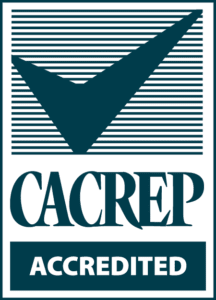Master of Arts
MA in Clinical Mental Health Counseling, Addictions Counseling
Help heal individuals, families, and entire communities.
Addiction is unfortunately a common problems in today’s society. Fortunately, with increased awareness of these pressing issues, more individuals are seeking help to overcome the mental hurdles needed to revert back to a healthy lifestyle. This Clinical Mental Health concentration is not only beneficial to your career, but it will also make a direct and immediate impact on the individuals, families, and communities affected by addiction. Become a highly specialized counselor and help those affected by addiction to live healthier, happier lives. This degree is offered by AU New England
Program Overview
In the Addictions Counseling concentration, the first two semesters of your 60-credit program will be the same as the basic Clinical Mental Health Counseling track. During the next three semesters, you will complete specific coursework in addiction counseling. Students in this concentration must also complete an internship in addiction counseling and participate in a supervision group oriented to substance abuse and addiction counseling. The wide variety of placements for students may include high school student assistance programs, residential placements, in-patient addiction units, community mental health centers, and prisons. Graduates will meet the academic requirements for licensure as clinical mental health counselors in most states, as well as the academic requirements for certification and licensure as alcohol and drug counselors in most states that have such certification or licensure.
This program is designed to lead to state licensure.
Program Objectives (also referred to as Learning Outcomes)
- Ethical Practice: Students will demonstrate principles and standards of professional ethics in counseling and ethical decision-making informed by social justice.
- Social and Cultural Diversity: Identify strategies needed to address institutional and social barriers that impede access, equity, well-being, and success for clients.
- Human Growth and Development: Students will demonstrate knowledge of lifespan development and the capacity to integrate knowledge of developmental theory into practice.
- Career Development: Identify career development strategies that incorporate a focus on social justice and advocacy.
- Counseling and Helping Relationships: Demonstrate an understanding of theories of counseling and development of case conceptualizations and treatment plans that are underpinned by social justice
- Group Counseling and Group Work: Integrate into their practice of MHC the awareness of the influence of social and cultural contexts on groups
- Assessment and Testing: Students will demonstrate a broad understanding of different types of assessments, the selection and use of assessment tools, client assessment and diagnosis, trauma assessment, and the assessment of self-inflicted harm and danger to others.
- Research and Program Evaluation: Demonstrate and apply their professional identity as a clinical mental health counselor through an individual philosophy of practice grounded in critical analysis and research and interpretation.
- Clinical Mental Health Counseling Specialty Area: Clinical Mental Health Counseling students will demonstrate an understanding of foundational knowledge, demonstration of competence in clinical mental health practice, knowledge of social justice issues, and a focus on wellness.
- Professional Dispositions: From admission through exit, students will demonstrate the attitudes, characteristics, and behaviors defined by the program as characteristic of exemplar counseling professionals.
Degree Requirements
REQUIRED COURSES:
- COUN 6030 Group Counseling (3 credits) COUN 5902 Foundational Counseling Skills (3 credits) COUN 6032 Professional Orientation & Ethics (3 credits) COUN 5142 Assessment and Testing (3 credits) COUN 5542 Counseling Theories (3 credits) COUN 6122 Addictions Counseling (3 credits) COUN 5262 Human Growth and Development (3 credits) COUN 6062 Social and Cultural Diversity (3 credits) COUN 6422 Couple and Family Counseling (3 credits) COUN 5502 Diagnosis and Treatment (3 credits) COUN 5222 Career Counseling Development (3 credits) COUN 6902 Research and Evaluation in Counseling (3 credits) COUN 6752 Crisis Counseling Interventions (3 credits)
- COUN 6940 CMCH Capstone (3 credits)
- COUN 6960 Practicum – total of 100 hours (3 credits)
- COUN 6990 Internship – total of 600 hours over 2 semesters or 6 credits total (3 credits each)
PLUS, PICK THREE FROM THE FOLLOWING: COUN 6662 Family Counseling Approaches to Addictions (3 credits) COUN 5632 Psychopharmacology (3 credits) COUN 6262 Integrative Approaches to Addictions Counseling (3 credits) COUN 6132 Process Addictions (3 credits) COUN 6142 Social Justice and Advocacy in Addictions Counseling (3 credits)
Licensure
Graduates of the CMHC Program may apply for professional credentials recognizing their level of training and experience. Credentials may be granted by national professional boards/organizations or by state regulatory boards. The CMHC Program recognizes the importance of licensure and certification for professional practice. The legislature in each state establishes the criteria for licensure and an appointed board determines if an individual's education and experience meet their standards. The AP Department has designed its programs to be consistent with the standards of the representative professional organizations. Individual states, many of which base their legislation on professional organization's standards, vary as to specific coursework, number of hours of supervised practice, supervisor qualification, and other required criteria.
While the department offers coursework and internships that allow students to put together a licensable portfolio, it cannot guarantee licensure. Students with any negative results on a criminal background check should inquire with the state board in advance to determine if the results of their background will hinder their ability to become licensed in their state. As graduates of a CACREP accredited program, students are eligible to obtain full certification as a National Certified Counselor (NCC) upon graduation after passing the National Counselor Exam offered in April of their final year and completing the required applications. See the NBCC website for information on this process. Graduates self-reported pass rate on the NBCC exam is 80%. Students will learn about the steps to licensure for the state in which they plan to pursue licensure in the Professional Orientation and Ethics course, however, students are responsible for knowing the expectations of the state in which they plan to apply. Students should actively consult their state’s counseling board for the most recent information about professional licensure.
Faculty are available to consult with students and the following websites are helpful when navigating the licensure process: National Board of Certified Counselors American Counseling Association American Mental Health Counseling Association, American Association of State Counseling Boards To locate contact information, available licenses, and required examinations per State, visit the NBCC’s State Board Directory: http://www.nbcc.org/Search/StateBoardDirectory. For information on individual state requirements, see the NBCC State Licensure page.
This program is designed to lead to state licensure.
Accreditation
 2019-2020 CMHC Annual Program Review 2020 CACREP Vital Stats
2019-2020 CMHC Annual Program Review 2020 CACREP Vital Stats
Upcoming Events
Recent News
-
Amy Morrison Presents Workshop at International Expressive Arts Therapy Association Conference
on June 19, 2025
-
The Vital Role of Gender Affirmation in Therapy for TGNC Individuals and Their Families
on June 17, 2025
-
Blaisdell, Dietz, and Howard publish an article in Ethnic and Racial Studies
on June 13, 2025

